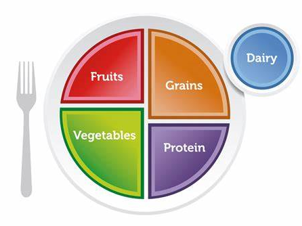What Does National Nutrition Month Mean?
So, you’ve probably heard that it’s National Nutrition Month this month, but what does that really mean?
Are you supposed to eat salads every day? Does eating healthy mean only fruits and vegetables? Do you throw away all your favorite foods and start a strict diet for the month? Do you need to start tracking your calories? Absolutely not! There is so much more to a healthy diet. We’ve heard time and time again “everything in moderation”, but it’s so true!
National Nutrition Month is a chance to learn new ways to feed your body with a variety of healthy foods. You can do so by learning from our very own Registered Dietitian Nutritionist. They can help you improve your health through food!
Celebrate a World of Flavors & Healthy Recipe Submission Contest
This year, we are celebrating National Nutrition month with a theme, Celebrate a World of Flavors, and a healthy recipe submission contest! This is perfect since we know there is no such thing as a one size fits all diet. We all come from different cultural backgrounds, have different needs, and enjoy different foods. This March is all about celebrating those differences while also exploring new flavors. Eating healthy is all about variety!
 Healthy Recipe Contest Directions:
Healthy Recipe Contest Directions:
- Must be an original recipe
- Healthy recipe must feature at least 3 different herbs/seasonings from around the world
- Healthy recipe will be selected based on nutritional analysis for sugar, sodium, and saturated fat of recipe.
-
- Sodium content: <400mg per serving
- Sugar: <10g
- Saturated fat: <4g
- Must be made within 20 minutes
- Take a picture of your healthy creation!
- Submit your healthy recipe and photo before March 18th to [email protected].
The selected winner’s recipe will be featured in a cooking demo on March 25th on Adelante’s Facebook and Instagram!
Instagram: @adelantehealth
Facebook: Adelante Healthcare
It is all About Balance!
Nutrition is about eating a variety of foods in amounts that are not too big, and not too small. This way, we get nutrients from each food group. It’s all about balance! An easy way to make a balanced plate is to use MyPlate. It’s a tool that includes a mix of fruits, vegetables, whole grains, protein foods (animal or plant), and dairy.

Here’s what MyPlate recommends as portions for each group to have daily:
- Fruit: 2 cups (for most adults)
- Vegetables: 2-4 cups (men typically need more veggies than women)
- Grains: 3-5 ounce equivalents* (50% of your grains should be whole grains)
- Protein: 5-7 ounce equivalents* (men typically need more protein than women)
- Dairy: 3 cups
* An ounce equivalent= for foods like grains, an ounce would be equal to a slice of bread. For protein foods an ounce is 1 egg or 1 measured oz of animal protein. A recommended serving is 3oz.
10 Tips for healthy eating during National Nutrition Month
Now that we know how to build a balanced plate, here are 10 tips to help you eat healthy during National Nutrition Month:
5 tips for grocery shopping & eating on a budget
- Check out what you have in stock. Before making your grocery list, go through your pantry, fridge, and freezer. Check for items that are about to expire and include them in your meals that week to avoid food waste.
- Make a list. Write out the foods you need for your meals that week. Compare prices of these foods at different stores by looking at the ads in the newspaper or online
- Shop for foods that are in-season. Typically, these foods are usually less expensive. You can find out what’s in season here: https://snaped.fns.usda.gov/seasonal-produce-guide
- Don’t shop when you or your kids are hungry. Have a filling snack or balanced meal before you go to avoid impulse buys.
- Buy frozen or canned foods. When it comes to veggies, frozen or canned options are just as great nutritionally and last longer, which saves you an extra trip to the store. It’s great to have these as a backup stock at home. Rinse off your canned vegetables with water before you eat them.
5 tips for meal preparation & planning
- Create a space. Cooking can be stressful, especially when making a lot at once. Create more space by starting with a clean kitchen and designated area for you to prepare your meal.
- Chop your veggies ahead of time. Washing and chopping your veggies 1-2 times per week can cut down on your meal prep time. Store your veggies in containers at the front of your fridge, so you’ll be more likely to eat them.
- Make a big batch of food at once. Try doubling your recipe or making extras of your dinner for your meals later in the week. This way, you save time and money by preparing future meals for yourself and family.
- Make your freezer your best friend. It can be frustrating when your fresh fruits and veggies are eaten up quickly or become spoiled. Buy frozen veggies and fruits which can last longer in your freezer and are just as nutritious. You can also freeze single-portioned meal prepped foods like soups or pastas.
- Make it enjoyable. You are more likely to do something consistently if you enjoy it. Make it a family activity by involving your kids. If you prefer to do it alone, listen to your favorite music or audiobook while you prepare meals.
If you would like additional resources on National Nutrition Month and eating healthy, use the links below: